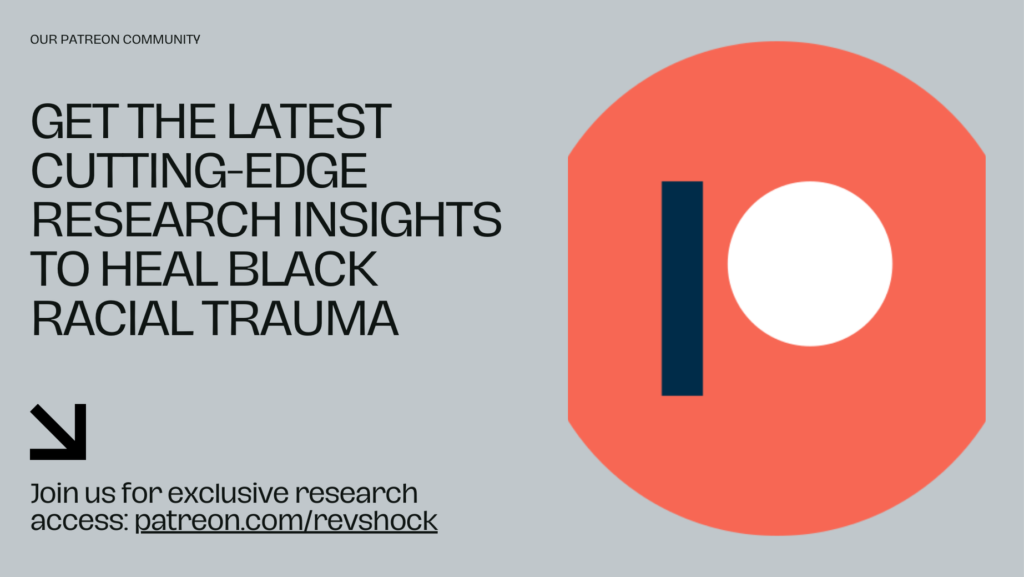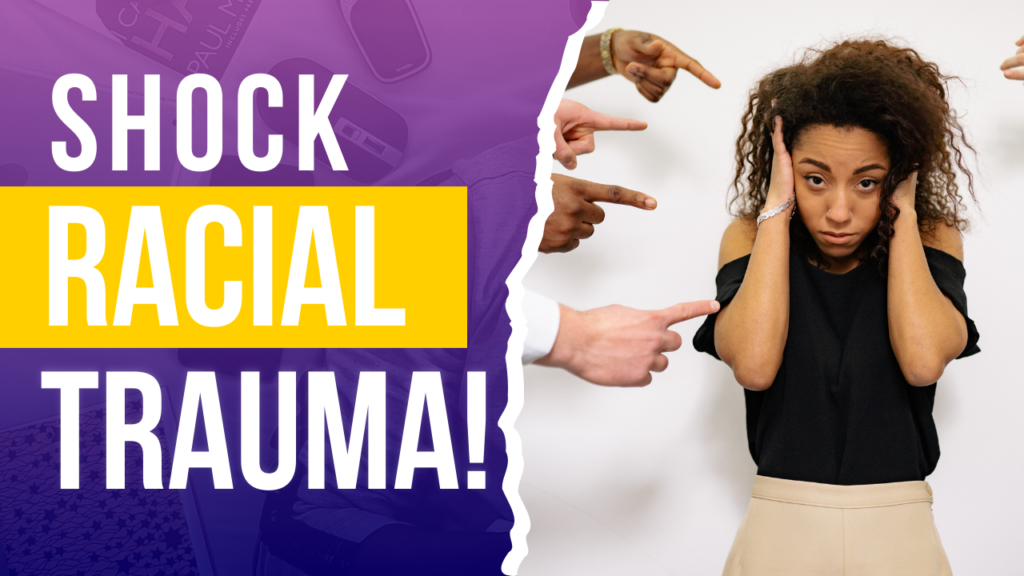
Powered By BlackTraumaGPT.com
Researched and Curated By Rev. Dr. Philippe SHOCK Matthews
(Black Trauma and Mental Health Specialist | Prompt Eng | GPT Dev | Research Scientist | Africana Phenomenologist | Black AI Corsortim co-Founder | Black Mental Health Podcast Host)
Body-Based Self-Protection: Becoming Fat So You Won’t Attract!
In a conversation with social worker Juli Nixon, she explained that trauma can deeply impact both men and women, leading some Black individuals—especially women—to unconsciously or consciously gain weight as a way to appear less attractive, reducing unwanted attention from men.
The technical term for how racial trauma can make you fat is called body-based self-protection. The act of deliberately overeating and gaining weight to become morbidly obese in an attempt to make oneself unattractive and avoid attention from the opposite sex could be viewed as a form of self-sabotage or body-based self-protection. It may be connected to deeper emotional or psychological issues, such as trauma, especially related to unwanted attention, past abuse, or fear of intimacy. This behavior is sometimes a coping mechanism for individuals who have experienced significant trauma, using their body as a form of armor to feel safe from perceived threats or unwanted advances.
In the context of Black trauma, particularly among Black women, body image and weight gain can sometimes relate to the intersection of racism, sexism, and trauma from sexual objectification. Black feminist scholars like Bell Hooks and Beverly Guy-Sheftall have discussed the ways in which Black women’s bodies are often hypersexualized or dehumanized, which can lead to protective behaviors that alter how one presents physically.
This kind of behavior can also fall under the broader category of disordered eating or trauma-based coping mechanisms, where food is used as a tool for emotional regulation or safety. Trauma therapist Resmaa Menakem talks about how the body stores trauma and how protective mechanisms, like overeating, are responses to past pain or fear.
It’s important to approach these behaviors with deep empathy and understanding, as they often reflect unresolved trauma that could benefit from professional therapeutic support and community healing practices.
Is Body Based Self Protection More Prominent In Women Than Men?
Yes, body-based self-protection is often more prominent in women than men, although it can affect people of all genders. The reasons for this are deeply rooted in societal norms, gender dynamics, and the prevalence of gendered trauma, especially related to objectification, sexual violence, and harassment, which disproportionately affect women. These experiences can lead women to use their bodies as shields, sometimes through weight gain or other means of altering their appearance, to protect themselves from unwanted attention, advances, or further harm.
There are several factors contributing to the prominence of this phenomenon in women:
- Sexual Objectification: Women, especially Black women, are often hypersexualized in society. This objectification can lead some to seek safety by changing their bodies to avoid the gaze or advances of men. For many, gaining weight or altering their appearance can feel like a way to reclaim agency over how their bodies are perceived or treated.
- Trauma from Abuse: Women experience sexual harassment, assault, and violence at higher rates than men. Research, including that by scholars like Dr. Thema Bryant and Dr. Joy DeGruy, highlights how trauma can manifest in the body. Weight gain or other forms of body alteration may serve as a form of trauma response—an unconscious or conscious effort to make themselves feel “invisible” or less vulnerable to sexual aggression.
- Patriarchal Norms: In patriarchal societies, women are often judged by their physical appearance more than men. This pressure to conform to specific standards of beauty, and the consequences of attracting unwanted attention when those standards are met, create complex dynamics. Some women might resist this by altering their bodies as an act of self-protection or rebellion.
- Cultural Factors: In Black communities, where historical trauma such as enslavement, exploitation, and the sexual abuse of Black women is deeply ingrained, these dynamics can be even more pronounced. Black feminist thinkers like Patricia Hill Collins have pointed out how Black women in particular may respond to these compounded traumas by altering their bodies, either consciously or unconsciously, to protect themselves from objectification and harm.
While men can also engage in body-based self-protection, often in response to different types of trauma, societal expectations about masculinity and body image do not place the same emphasis on physical appearance as they do for women. Men who experience this may respond differently, perhaps by trying to become more muscular as a form of self-defense or body-based protection. However, the specific form of self-protection through weight gain or altering appearance as a way to avoid sexual attention tends to be more common among women.
In both cases, this is often an indicator of underlying trauma, and addressing these behaviors typically involves trauma-informed therapy and community healing, emphasizing body autonomy and empowerment.
Resources:
Systemic Racialized Trauma and Its Contribution to Weight Gain in Black People: A Review https://bit.ly/3tIkWmY If nothing is wrong with you and something happened to you…are you ready to find out what to do about it? Shock Trauma Spiritual Counseling Discovery Call https://t.ly/VJWqJ | BlackTraumaGPT.com: Beginner’s User Guide https://t.ly/HtHMX | Programming chatGPT for Black Self Mental Health, Trauma, and Healing https://amzn.to/47P8MXK
Enjoying Our Content?
Become a member of our Patreon to get the latest research on Racial Black Trauma ! https://www.patreon.com/revshock. Or buy Rev. SHOCK a Coffee! https://bit.ly/3yg5D7A


Book A Discovery Call
Are you ready to SHOCKtrauma? Click HERE now to book a discovery call with Rev. Dr. Philippe SHOCK Matthews

Get Social with Doc SHOCK:
PATREON: https://t.ly/mjksf | REV. DR. SHOCK (PERPLEXITY PAGE): https://t.ly/ppjwh | SOLO: https://solo.to/revshock | BIO: https://t.ly/Ko_y_ | BLOG: https://t.ly/j6bh0 | PODCAST: https://t.ly/cB5GD | ENDORSEMENT: https://t.ly/jFErO | THREADS: https://t.ly/SoKkT | IG: https://t.ly/XsN8f | FB: https://t.ly/R3r9Y | X: https://t.ly/iJ-wy | LINKEDIN: https://t.ly/GZ0pe | TIKTOK: https://t.ly/zfp60 | BLACK TRAUMA GPT: https://t.ly/vswbs | BLACK AI CONSORTIUM: https://t.ly/uiRZN | BOOKS BY PM: https://t.ly/vvHMd
